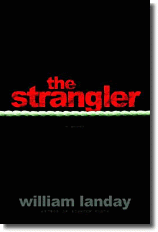 Niraj Kapur, born in Belfast and reared by Indian parents, lives in England. He has been a writer-for-hire on various children's shows like CBBC's The Story Makers and Hana's Helpline on S4C. His drama, Stanley and Me, was shown successfully on Anglia TV. He also writes for Cosmopolitan and Asian Woman.
Niraj Kapur, born in Belfast and reared by Indian parents, lives in England. He has been a writer-for-hire on various children's shows like CBBC's The Story Makers and Hana's Helpline on S4C. His drama, Stanley and Me, was shown successfully on Anglia TV. He also writes for Cosmopolitan and Asian Woman.Heaven's Delight is his debut novel, part of a romantic comedy trilogy.
Not so long ago I asked him what he was reading. His reply:
The Page 69 Test: Heaven's Delight.Beyond The Blonde by Kathleen Flynn-Hui is a cracking novel, full of wit, pace and unexpected warmth; unexpected, because stories of rich people are routinely dull, but there's a subtle love story through the madness and mayhem of life as a New York hairdresser, that was hugely enjoyable.
The Chocolate Lovers Club by Carole Matthews is set in England. I've just read it for the second time (the first time I read a book is for pleasure; the second time it's to dissect the novel and see why it's so appealing). Carole has written many wonderful novels. This is my favourite.
Chris Manby's Ready Or Not is another chick-lit adventure setin London. Like Carole, she has the unique ability to make you turn every page and laugh hard.
With half-term next week in England, I'll be tucking into Stephen King's Cell. Growing up, Stephen King was my favourite author, but I have nothing new to say in horror that hasn't already been said.
When I wrote my debut, Heaven's Delight, I mixed rom com with adventure, so I read everything from J.K. Rowling, which astounded me, to the Narnia series, which was nostalgic, to Anthony Horowitz's Stormbreaker - a novel for teenage boys that also appeals to parents like me.
My Book, The Movie: Heaven's Delight.
--Marshal Zeringue























































